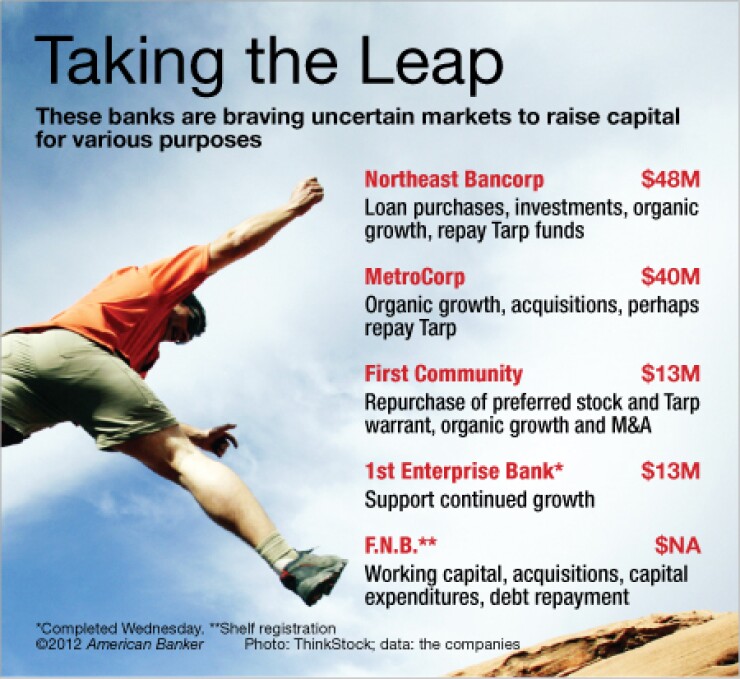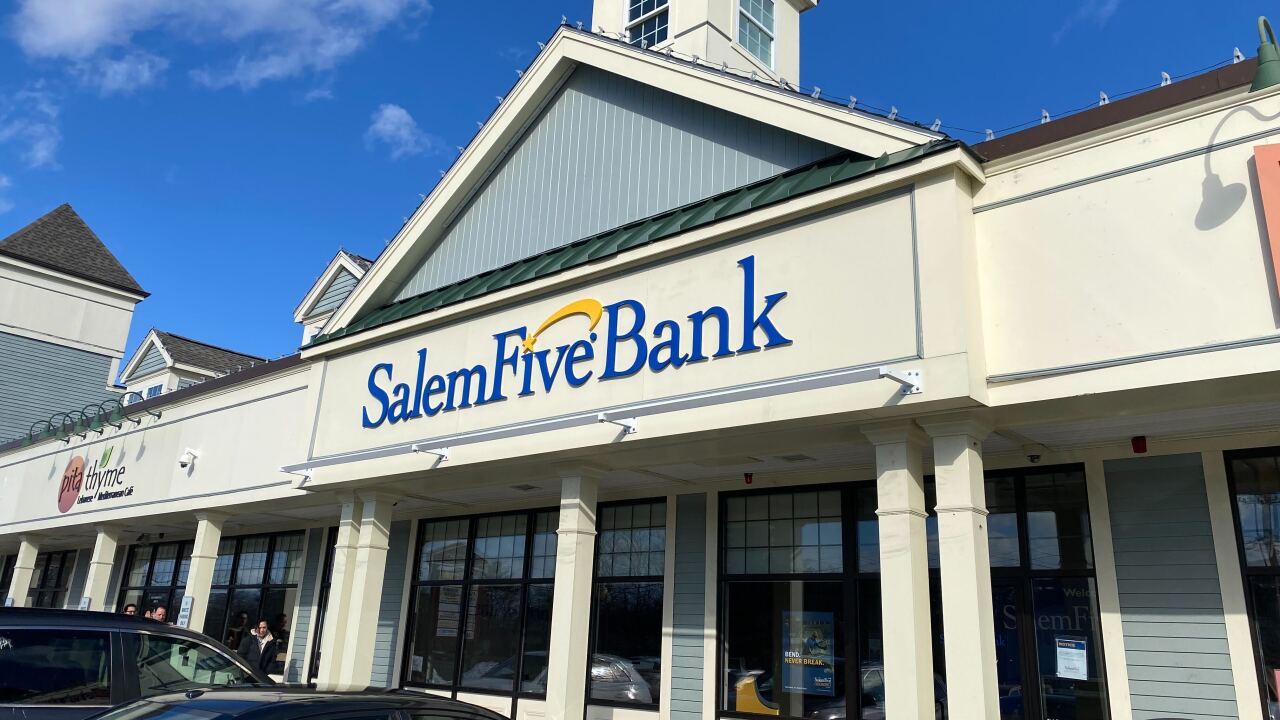-
At least three serial consolidators are positioning themselves for more deals should the right opportunity arise. SCBT and Iberiabank filed shelf registrations this month, while Wintrust raised $127 million.
March 26 -
The bank, led by ex-Sovereign chief Jay Sidhu, cited uncertain market conditions.
May 8 -
EverBank Financial in Jacksonville, Fla., reduced the size of its public offering again on Thursday, just hours before its shares began trading.
May 3

Demand for bank stocks is up this year, but Wall Street is showing reluctance to fund a certain kind of lender: Hometown banks with dim prospects for making acquisitions.
Sharp sell-offs greeted three small banks that set out to tap the capital markets for growth funds and money to retire federal aid: The $1.5 billion-asset MetroCorp Bancshares (MCBI) of Houston, the $600 million-asset First Community (FCCO) of Lexington, S.C., and the $600 million-asset Northeast Bancorp (NBN) of Lewiston, Maine.
Their willingness to sell new shares at all reflects the optimism over a five-month rebound in banking stocks, experts say: KBW's index of large banks has risen 19% this year while its small bank index has gained 14%.
The chilly reception to the three offering plans underscores weaker demand for banks that still need to get their finances in order before they can compete heavily for new customers and acquisition targets.
"The market has thawed, and we're seeing banks being more successful with offerings," said Curtis Carpenter, managing director with investment bank Sheshunoff of Austin. "Our experience has been that banks that have a very positive growth strategy either organically or through acquisitions are seeing the most receptivity to their offerings. The ones that are simply raising the money to get rid of [Troubled Asset Relief Program funding] — that has been a little more spotty."
The threat of dilution can always send investors scattering when a bank announces plans to issue more shares. But the last two days have shown that sell-offs can be particularly harsh for those that primarily need capital to fix their balance sheets.
Northeast's shares fell 20% Wednesday after it priced a $48 million offering, and MetroCorp's shares fell 15% Wednesday
MetroCorp and First Community cited acquisitions as a potential use of proceeds. All three would have difficulty buying anything right now. Each has outstanding trust preferred shares they would like to retire in addition to Tarp.
Northeast and First Community have few overdue loans but they are only moderately profitable and have fairly high expense ratios. Both trade well below the value of their tangible books, which means they have weak currencies. Both could have a tough time proving to investors and regulators that they can generate enough capital to justify buying anything. First Community is also operating under a 2011 memorandum of understanding with the Federal Reserve that relates to its capital sufficiency and ability service debt and pay shareholder dividends.
South Carolina and Maine are also two states where bank mergers have been particularly slow in recent years.
MetroCorp is more profitable than those two and has more valuable shares. But it may be similarly hampered on the deal front as its strategic focus remains inward. It has a fairly high ratio of nonperforming assets (3.83%) that it needs to bring down, and it is in the midst of consolidating operations in Texas and California.
In addition, Texas and the Gulf Coast region are two of the priciest and most competitive markets in bank mergers. It likely does not have the financial heft to outbid BB&T (BBT), Iberiabank (IBKC), Cullen/Frost Bankers (CFR) and other healthy banks angling to expand in the region.
Other banks are raising capital from investors this week, too.
The $11.7 billion-asset F.N.B (FNB) of Hermitage, Pa., —
A bank that trades over-the-counter on Tuesday announced an offering, too. The $580 million-asset 1st Enterprise Bank of Los Angeles said it raised $12.5 million from institutional investors in a private placement.




